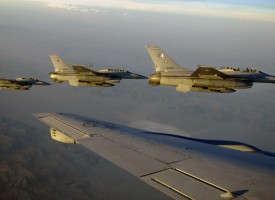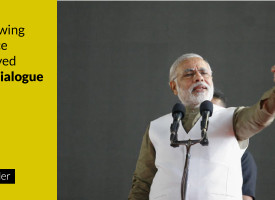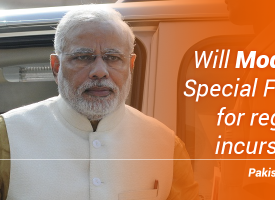The following is a concise English translation of renowned bureaucrat Dr. Safdar Mehmood’s column titled “Sataesween Ramazan aur Qayam-e-Pakistan”, published in Jang newspaper on August 16, 2015 (continued from the previous part).
******
He (my spiritual teacher) said, “Today is the last Friday of Ramazan, a blessed day. Prostrate before Allah in gratitude and offer prayers to make Pakistan a great empire”.
In a special session of Pakistan’s first Constituent Assembly, united India’s last viceroy Lord Mountbatten declared August 14 as Pakistan’s Independence Day and also announced the transfer of power; he also felicitated Quaid-e-Azam on the creation of a new state. His words were, “The way in which you acquired freedom is exemplary for freedom fighters around the world”. Pakistan’s Constituent Assembly had approved Pakistan’s flag on August 11, 1947. And so on Quaid-e-Azam’s wish and guidance, Pakistan’s flag was waved in Karachi by Maulana Shabbir Ahmed Usmani and in Dhaka by Maulana Zafar Ahmed Usmani.
Maulana Zafar Ahmed Usmani was the son-in-law of India’s renowned spiritual and religious personality, Maulana Ashraf Thanvi; whereas Maulana Shabbir Ahmed Usmani was among Maulana Thanvi’s close associates. This shows us how much respect Quaid-e-Azam had for Maulana Ashraf Thanvi. What was the objective behind requesting these spiritual and religious personalities to wave the flag of Pakistan? I’m sure the reasons are obvious. The purpose was exactly the same as Quaid-e-Azam had revealed in more than a hundred of his speeches, that Pakistan will be an Islamic welfare state. However, this does not mean that Pakistan was meant to be a religious state. Quaid-e-Azam had repeatedly clarified that Pakistan will not be a religious state and neither does Islam have any place for theocracy. Citizens of all faiths will have equal status in Pakistan.
Quaid-e-Azam took oath as Governor General from Chief Justice of Lahore High Court, Justice Abdul Rasheed on August 15, 1947. On the same day, Liaquat Ali Khan took oath as Prime Minister from him (Quaid-e-Azam). Pakistan’s first Gazette was published on August 15 which announced Quaid-e-Azam’s appointment as Governor General. In this context, Pakistan had the choice to either opt for August 14 as Independence Day, when it was announced, or on August 15, when the country was established. August 15 was India’s Independence Day, therefore Liaquat Ali Khan’s cabinet decided to select August 14 as Pakistan’s official Independence Day.
The question is, how did August 14, 1947 become the date of India’s freedom and Pakistan’s independence? Because those who were finalizing the dates didn’t realize at all that it would fall during the holy month of Ramazan. The midnight in which Pakistan’s creation will be announced will be Laylatul Qadar, which Muslims consider as the most blessed night; also, the Sun would rise on Pakistan on the last Friday of Ramazan. History tells us that British Prime Minister Attle had announced before the (British) parliament in February 1947 that united India could be given freedom in June 1948. Keeping Attle’s statement aside, nature had other plans and whatever nature wants, it gets. If Lord Wavell continued being the viceroy of a united India, he would have caused delays in our freedom. When Mountbatten succeeded Wavell as the viceroy in March 1947, he took sense of the situation, met Indian leaders and felt that they (British Kingdom) were sitting near a volcano which could explode any minute and cause destruction. When he went to see a village near Kahuta, he was depressed to see the entire village destroyed because of sectarian riots. In ‘Freedom At Midnight’, he (Mountbatten) was pictured in one instance walking on the rubble of destroyed homes. He reached Peshawar and looked down from the fort’s boundary wall to see a crowd of burqa-clad women who were chanting slogans for freedom. After carefully observing the political and economic situation, he concluded that it was in India and Britain’s interests to give freedom to united India as soon as possible and wind up British control.
On the other hand, World War II had put so much economic pressure on Britain that it was impossible for it to retain occupation over its colonies. Mountbatten planned the partition of the Subcontinent, had it approved from the (British) government and on June 2, 1947 met India’s leaders Quaid-e-Azam, Nehru and Sardar Baldev Singh; all of them agreed to his plan for transfer of power. As a result, on June 3, 1947, he officially announced transfer of power. Nowhere did it mention the date of transfer of power and the date of Pakistan’s creation. Nature has its own way of setting things in motion which is invisible, but not non-existent.
While announcing the partition of the Indian Subcontinent and transfer of power on June 3, the only thing Mountbatten said in his broadcast address was that united India would be given freedom in the next few months. In this regard, he held a press conference on June 4, 1947. It was the second time ever in which a viceroy felt it necessary to hold a press conference. Some 300 local and foreign press correspondents participated in this press conference.
After addressing the press conference, the Assembly Chamber in Delhi echoed with the sound of applause. It was during this that Mountbatten invited questions from the correspondents. The amusing thing is that the entire range of questions were related to transfer of power. An Indian correspondent asked the last question, “Sir! Transfer of power requires round-the-clock work. I am sure that you also have a date for it?” Mountbatten was too self-confident. He replied, “Yes, there is!” The newspaper correspondent asked, “What then, sir, is the date?” Mountbatten told the authors of ‘Freedom At Midnight’ that he wasn’t sure about the date of transfer of power because the (British) parliament had yet to pass the bill to authorize freedom of the Subcontinent; no one knew how much time it would take.
However, when this question was asked, Mountbatten also didn’t want to leave the impression that he was unauthorized to decide on a date. Therefore, for a brief moment, he wondered about how he could solve this historical puzzle. Mountbatten was commander of South East Asia during World War II and he had defeated the enemy in the jungles of Burma. World War II had ended in Europe in May 1945 but Japanese forces kept resisting and the battle continued. Japan’s government accepted defeat on August 14, 1945 and shared their prerequisites for surrender with their field commander. As a result, World War II officially ended between August 14 and 15, 1945. This date was embedded in Mountbatten’s mind, heart and the subconscious because it was a day of great victory for Britain. And so, in his press conference, he quickly replied to the last question by saying, “Power will be transferred to India on August 15, 1947”. Neither he, nor the British rulers were aware, that August 15 fell on 27th Ramazan, the most blessed day for Muslims and the eve of August 14-15… Laylatul Qadar.
It was nature’s plan and believe me, nature’s plans are never without a purpose.
(Excerpts from Dr. Safdar Mehmood’s book, “Pakistan… Meri Mohabbat”)
******
image via: wikipedia








No comments!
There are no comments yet, but you can be first to comment this article.